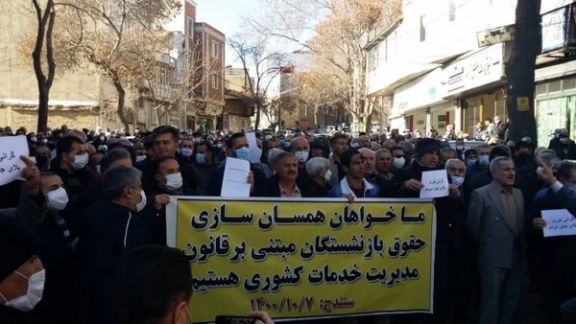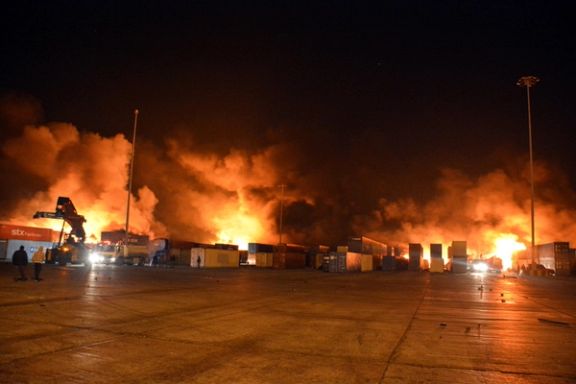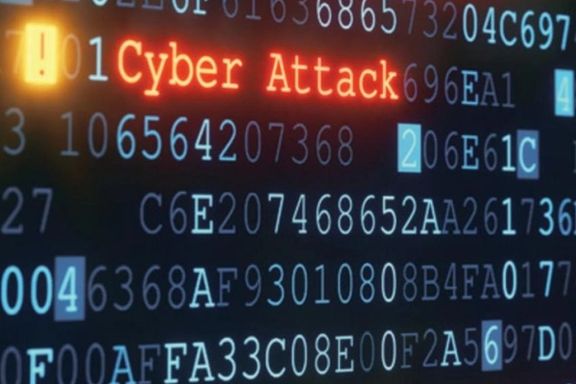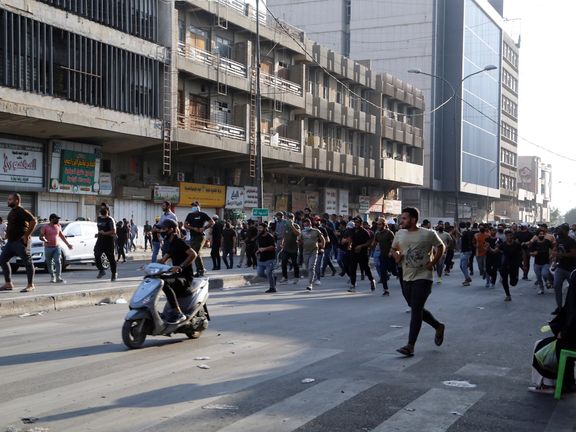Retirees Hold Protests In Several Iranian Cities Amid High Inflation

Iranian retirees held demonstrations in the capital Tehran and several other cities to protest their low pensions that have left them at the verge of poverty.

Iranian retirees held demonstrations in the capital Tehran and several other cities to protest their low pensions that have left them at the verge of poverty.
In the Tuesday rallies, the pensioners in Tehran gathered in outside the parliament while people in other cities held their protests at the provincial offices of the Civil Servants Pension Organization.
“Stand up and fight discrimination”, read some of the banners they carried during the rallies, while they were also chanting slogans against “incompetent authorities”, asking for their resignation.
The protesters demand higher pensions on par with the country’s inflation rate and rising costs of living. The annual inflation rate has hovered around 45 percent in recent months.
They called on the country’s authorities to accelerate efforts and approve laws that can potentially improve their pensions.
A bill to address the pensioners’ demands has been languishing in the parliament for months.
Iran, which is hit hard by economic sanctions, is the scene of frequent labor protests and strikes.
Hundreds of striking and protesting workers and labor activists have been arrested since 2017, many spending months in prison. Some are still detained without trial.

Experts and media are warning Iran's government of serious consequnces if it stops allocating cheap dollars for essential imports in next year's budget.
President Ebrahim Raisi (Raeesi) recently submitted a budget bill to parliament that included eliminating the below-market exchange rate of 42,000 rial to the dollar for essential imports while increasing cash payments to citizens to compensate for any price rises.
Hamid Pourmohammadi, a senior economic policy official, told state television Monday that ending a special exchange rate for essential imports would increase inflation by just 7 percent.
Pourmohammadi, deputy head of the Planning and Budget Organization, told IRIB that higher prices for some daily purchases like bread would be compensated by increased government cash payments to citizens.But the amount of the additional payments mentioned by officials is only around $4 of cash handouts per month.
Inflation reports in recent month by the Statistical Center of Iran, a government organization has put the annual inflation rate at 45 percent.
Pourmohammadi argued that continuing to allocate dollars at a lower rate for essential imports would lead to a 28 percent jump in inflation, by forcing the government to print money to offset the fiscal losses caused by continuing high demand on foreign exchange.
The World Bank wrote last year that Covid-19 spending and “plummeting” oil revenue, due to the United States ‘maximum pressure’ sanctions that began in 2018, were taking Iran’s fiscal deficit to over 6 percent of GDP.
The subsidized rate − currently 42,000 rials to the dollar − has been in use since April 2018 - to hold down costs of imported food, medicine, and animal feed. The street rate stands at around 300,000.
There was only a single forex rate before 2018, when the government of President Hassan Rouhani introduced a subsidized rate of 42,000 after the rial fell to nearly 60,000 against the dollar in April 2018 as US president Donald Trump prepared to withdraw from the 2015 nuclear deal, the JCPOA (Joint Comprehensive Plan of Action).
Critics say forex reform, although necessary, will push up the already high rate of inflation to a level above the tolerance of vast groups of Iranians and cause a major upheaval.
"People's patience with economic [hardships] is running out,” a commentary in the conservative Asr-e Iran website Tuesday said. “The Iranian people are under 'maximum pressure’ on their subsistence. The burden imposed on them over the years has gradually grown so heavy that increasing a feather on top will break their backs."
The commentary argued there should be no price increases: "Stop…weighing people down with new economic burdens. Otherwise, the number of people who have nothing to lose will increase next year and you are better than anyone aware of the catastrophic security consequences of such circumstances."
Hassan Sadeghi a labor activist said at a union meeting on Monday said, "In fact, the government wants to offset its budget deficit by increasing the forex rate [for importing essential commodities] to the level of the rate in the open market. The pressure of this move will fall on the lower income classes and workers.”

Iranian President Ebrahim Raisi will pay an official state visit to Russia in 2022, upon an invitation by Russian President Vladimir Putin, Iran said Tuesday.
Government spokesman Ali Bahadori-Jahromi told reporters that the state visit will probably take place in the early days of the new year.
The visit was announced as representatives of Iran and Russia as well as China and three European countries are negotiating for the revival of the 2015 nuclear deal between the Islamic Republic and world powers.
Russia has been a diplomatic and military ally of the Islamic Republic, although it has been cautious not to violate economic sanctions imposed by the United States on Iran.
The two countries have been fighting in Syria to save president Bashar al-Assad's regime, with Iran supplying ground forces and Russia air power.
Successive Iranian presidents have attached great importance to ties with Moscow as a counterbalance to the West.
Earlier in December, Putin said that he invited his Iranian counterpart to visit Russia early next year, addeing, “I hope Iran’s president will accept my invitation”.

Israeli warplanes have fired missiles at the port of the Syrian coastal city of Latakia, causing large explosions and massive material damage, Syria said.
The attack early Tuesday morning was the second Israeli strike on the key facility in a month.
According to the official Syrian Arab News Agency SANA, "a large number of containers" resting in the port caught fire, causing “significant material damage”. It added that the airstrike wrecked the facades of a hospital as well as some residential buildings and shops.
“At around 3:21am (05:21 GMT), the Israeli enemy carried out an aerial aggression with several missiles from the direction of the Mediterranean … targeting the container yard in Latakia port,” the agency quoted an unnamed military source.
Live footage aired by the state television showed flames and smoke in the container storage area of the terminal, but later in the day Syrian media said that the fire was under control.
After the first strike on the port earlier in December, Israeli Prime Minister Naftali Bennett vowed that Israel would continue to push back against what he called "destructive forces" in the region.
Israel says the target of its attacks are Iranian supplies headed for the Lebanese Hezbollah.
Iran reportedly uses the terminal to transport munitions to its proxies in the region.

A British minister says he United Kingdom has included the Islamic Republic in its list of hostile nations along with Russia, China, and North Korea.
In an interview with the Telegraph, UK Minister of State for Security and Borders Damian Hinds cited cyber activity concerns and disinformation campaigns as the reasons behind the decision.
"The three countries that I mentioned to you have physical human capability, they have a big cyber presence, they're able to deploy at scale," Hinds said, referring to Iran, Russia, and China.
He added that it’s not just terrorism that threatens UK security as geopolitical power struggles are on the rise, noting that these countries "are involved in multiple ways" in terms of spies on the ground, cyberattacks, soldiers on standby, and disinformation campaigns.
The triumvirate of Russian, China and Iran was also mentioned by MI6 chief Richard Moore in a BBC interview last month.
“They can run, and do run, information ops and are involved in multiple different ways. I mean, it's difficult to give you a comprehensive list because there are so many potential ways,” Hinds stressed.
He added that North Korea is the fourth hostile state on the radar.
Iran has a strong network of state hackers who regularly target American, Israeli and other government and company computers, both for disruption and for obtaining sensitive information.

Iraq's Supreme Court Monday rejected appeals by Iran-backed Shi'ite factions against the results of the October parliamentary election, the chief judge said.
The decision derails attempts by Iran-backed militia groups and their political candidates to overturn the election result in which they performed poorly.
The Iran-backed factions, including powerful armed groups, had alleged irregularities in the October 10 vote. Judge Jassim Mohammed read out the ruling rejecting their appeal at the court headquarters in Baghdad.
Iran seemed to be endorsing the election results last week when Iraq’s foreign minister visited Tehran and held talks. For the first time, President Ebrahim Raisi described the elections in Iraq as "peaceful and secure."
The biggest winner in the vote was the movement led by Shi'ite cleric Moqtada al-Sadr, an opponent of both Iranian and US influence in Iraq, which won 73 seats, more than any other group in the fractious 329-seat house.
Once the result is confirmed by the Supreme Court, negotiations are expected among Shi'ite, Sunni and Kurdish groups over the formation of a new government to replace the outgoing cabinet led by Prime Minister Mustafa al-Kadhimi.
Reporting by Reuters